Whatever Happened to Besieged Kurdish City of Kobane, Syria?
Kurdish forces, supported by Free Syrian Army troops and coalition air strikes, have largely recovered Kobane from rule by Daesh (called Islamic State in the West).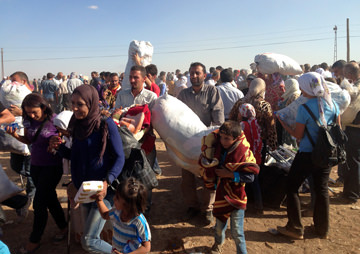 Refugees from Kobane in Suruc, Turkey. fpolat69 / Shutterstock
Refugees from Kobane in Suruc, Turkey. fpolat69 / Shutterstock
This post originally ran on Juan Cole’s Web page.
Kurdish forces (including both the local YPG and Peshmerga units from Iraqi Kurdistan), and supported by Free Syrian Army troops and coalition air strikes, have largely recovered Kobane from rule by Daesh (called in the West ISIL or ISIS).
Kurdish forces have recovered control of the downtown where the government buildings are, as well as some 80% of the city. Daesh fighters still have about 20% of it, especially in the south. The air force of the U.S. and other allied countries have conducted air strikes on Daesh fighters and equipment, killing 14 fighters. The latter have been much weakened. Kurdish forces are preparing to try to take some villages in the vicinity of Kobane as well.
It is so far a remarkable story of resilience and even comeback. Kobane, which Arabs call `Ayn al-`Arab, has held out against all odds. Neighboring Turkey would not help because the YPG, which is an offshoot of the separatist Kurdistan Workers Party (PKK), is the major local fighting force. Turkey did allow Peshmerga paramilitary units, loyal to the Kurdistan Regional Government of northern Iraq, into Kobane to fight Daesh.
Kobane lies in the north of the Syrian province of al-Raqqa, which is completely in Daesh hands. It is not an old Syrian city but a new town from a century ago, that grew up as a railway stop and then was used as a camp by the Ottomans for expelled Armenians. Kurds settled there from the countryside as Armenians emigrated elsewhere. There are two large long-standing Kurdish population centers in northern Syria that on the surface looked to have much better chances of holding out against Daesh.
Kobane’s position as a holdout was quite difficult. Thousands of Kurds there and in its environs have fled to Turkey as refugees. That Daesh hasn’t succeeded there shows that coalition air strikes have attrited its heavy weaponry, leveling the playing field for the Kurdish defenders.
Air strikes were directed Monday at Daesh crude oil depots, as well, seeking to deny the terrorist gang of its income from smuggled petroleum.
===
Related video:
BBC News: “Inside Kobane: Keeping Islamic State at bay” (25 min. documentary)
This year, we’re all on shaky ground, and the need for independent journalism has never been greater. A new administration is openly attacking free press — and the stakes couldn’t be higher.
Your support is more than a donation. It helps us dig deeper into hidden truths, root out corruption and misinformation, and grow an informed, resilient community.
Independent journalism like Truthdig doesn't just report the news — it helps cultivate a better future.
Your tax-deductible gift powers fearless reporting and uncompromising analysis. Together, we can protect democracy and expose the stories that must be told.
This spring, stand with our journalists.
Dig. Root. Grow. Cultivate a better future.
Donate today.

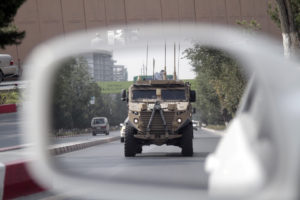
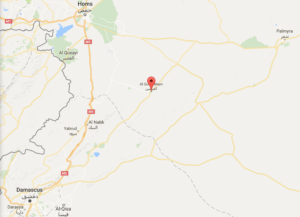
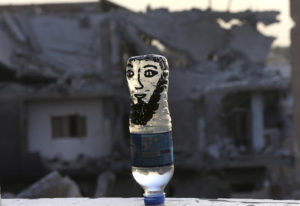
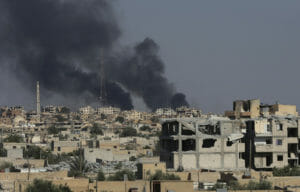

You need to be a supporter to comment.
There are currently no responses to this article.
Be the first to respond.